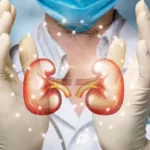The Best Fluffy Pancakes recipe you will fall in love with. Full of tips and tricks to help you make the best pancakes.
Periodontal disease, also known as gum disease, is a common condition that affects the tissues surrounding the teeth. It can lead to serious oral health issues if left untreated, including tooth loss. In this comprehensive article, we will delve into the symptoms, causes, and management of periodontal disease. We will also explore how long teeth can last with this condition, the risk factors involved, and the potential for reversing and preventing periodontal disease.
We will discuss the diagnosis, treatment, and potential complications associated with this condition, as well as the outlook and prognosis for those affected. Whether you are living with periodontal disease or seeking to safeguard your oral health, this article offers valuable insights and resources to support you. Let’s explore the world of periodontal disease and its impact on your dental health.
Key Takeaways:
- Early detection and treatment of periodontal disease can help preserve teeth for a longer period of time.
- Risk factors such as smoking, poor oral hygiene, and certain health conditions can increase the chances of developing periodontal disease.
- Regular dental check-ups and proper oral hygiene can help prevent and manage periodontal disease.
How Long Can You Keep Your Teeth with Periodontal Disease?
Periodontal disease can have varying effects on the longevity of teeth, and understanding the factors contributing to its progression and management is crucial for maintaining dental health.
Left untreated, periodontal disease can lead to bone loss, gum recession, and ultimately tooth loss. The build-up of plaque and tartar can exacerbate the condition, highlighting the importance of dental care and regular check-ups. Through professional cleanings and early detection, the progression of periodontal disease can be effectively managed. Treatment options may include scaling and root planing, antibiotics, and in advanced cases, surgical intervention. By addressing periodontal disease promptly, individuals can protect the longevity of their teeth and preserve their overall oral health.
Symptoms of Periodontal Disease
Recognizing the symptoms of periodontal disease is vital for timely intervention and effective management of the condition, safeguarding dental health and preventing potential complications.
What is Periodontal Disease?
Periodontal disease, commonly known as gum disease, encompasses a range of conditions affecting the gums and supporting structures of the teeth, often initiated by the accumulation of plaque and bacterial pathogens within the oral microbiome.
How Long Can Teeth Last with Periodontal Disease?
The longevity of teeth in the presence of periodontal disease depends on various factors, including the extent of bone and tissue involvement, the presence of tartar, and the effectiveness of preventive and therapeutic measures.
Risk Factors for Developing Periodontal Disease
Several risk factors contribute to the development and progression of periodontal disease, including genetic predisposition, exposure to bacterial pathogens, lifestyle choices such as smoking, and systemic conditions like diabetes and obesity.
Reversing Periodontal Disease
Efforts to reverse the progression of periodontal disease often involve comprehensive oral hygiene practices, professional interventions like scaling and root planing, and in some cases, surgical procedures targeted at addressing bacterial pathogens and promoting gum health.
Prevention of Periodontal Disease
Preventing periodontal disease involves maintaining optimal oral hygiene, attending regular dental check-ups, and mitigating risk factors such as gum recession, tobacco use, and the impact of stress or certain medical treatments on oral health.
Diagnosis and Tests for Periodontal Disease
Accurate diagnosis of periodontal disease involves evaluating symptoms, assessing risk factors, and utilizing specific tests to examine the oral microbiome and identify the extent of gum and bone involvement, highlighting the importance of regular dental check-ups.
Management and Treatment of Periodontal Disease
The management and treatment of periodontal disease encompass a range of interventions, including scaling and root planing, surgical procedures, and in advanced cases, the consideration of dental implants, bone grafting, and other regenerative techniques.
Living with Periodontal Disease
Living with periodontal disease necessitates a proactive approach to oral hygiene, regular monitoring of inflammatory and infectious aspects, and consistent dental check-ups to manage the condition and minimize potential complications.
Complications of Periodontal Disease
Periodontal disease can lead to various complications, including tooth loss, deteriorating gum health, and in severe cases, the need for interventions such as bone grafting or gum grafting to address the resultant impact on oral structures.
Outlook and Prognosis for Periodontal Disease
The outlook and prognosis for periodontal disease vary based on the individual’s response to treatment, the potential need for tooth extraction or bone grafting, and the importance of ongoing dental check-ups to monitor the condition’s progression and stability.
When to See a Dentist for Disease
Seeking prompt dental attention for periodontal disease is essential upon observing symptoms, identifying risk factors, or considering treatment options, emphasizing the role of regular dental check-ups in maintaining oral health.
Support and Community
Finding support and connecting with the community can be beneficial for individuals navigating the challenges of periodontal disease, fostering a sense of shared experiences and promoting proactive approaches to dental health, diagnosis, and treatment.
Additional Common Questions
Addressing common questions about periodontal disease can offer valuable insights into oral health, preventive strategies, available treatments, and the role of regular dental check-ups in managing and mitigating the condition’s impact.
Understanding the Oral Health Probiotic
Exploring the concept of an oral health probiotic offers insights into potential strategies for supporting the oral microbiome, addressing bacterial pathogens, and enhancing oral hygiene practices to combat conditions such as periodontal disease.
More Resources for Oral Health
Accessing additional resources for oral health can offer valuable information, support, and guidance on maintaining oral hygiene, preventing conditions like periodontal disease, and accessing appropriate treatments through regular dental check-ups.
Support and Contact Information
Offering support and accessible contact information can serve as a valuable resource for individuals seeking guidance, assistance, or additional details related to periodontal disease, dental health, oral hygiene, and treatment options.
Frequently Asked Questions
How long can you keep your teeth with periodontal disease?
The longevity of your teeth with periodontal disease will depend on various factors, including the severity of the disease, your oral health habits, and your overall health. In some cases, with proper treatment and maintenance, you can keep your teeth for a lifetime.
What are the stages of periodontal disease?
Periodontal disease typically progresses through three stages: gingivitis, periodontitis, and advanced periodontitis. The severity of the disease increases with each stage, leading to potential tooth loss if left untreated.
Can periodontal disease be reversed?
Gingivitis, the earliest stage of periodontal disease, can be reversed with proper treatment and oral hygiene habits. However, once the disease has progressed to periodontitis, it cannot be fully reversed, but it can be managed and slowed down with proper treatment and maintenance.
What are the common symptoms of periodontal disease?
Some of the most common symptoms of periodontal disease include swollen or red gums, bleeding while brushing or flossing, chronic bad breath, loose teeth, and a receding gumline. If you experience any of these symptoms, it is important to see a dentist for a proper diagnosis and treatment plan.
How can I prevent periodontal disease?
The best way to prevent periodontal disease is to maintain good oral hygiene habits, including brushing twice a day, flossing daily, and visiting a dentist regularly for cleanings and check-ups. It is also important to avoid smoking and maintain a healthy diet.
What are the treatment options for periodontal disease?
The treatment for periodontal disease will depend on the severity of the disease. In early stages, professional cleanings and improved oral hygiene habits may be sufficient. However, advanced stages may require more extensive treatment such as scaling and root planing, gum surgery, or tooth extraction. Your dentist will create a personalized treatment plan based on your individual needs.








